 Working in partnership offers benefits to both academics and to businesses and cultural organisations. These may include identification of new research questions, opportunities for publication and dissemination through events, student projects, new knowledge and skills, increased turnover and greater customer satisfaction. But how do you go about developing partnerships? What about intellectual property? How do you deal with practical issues such as academic versus industry language, disagreements and planning the project? How can impact be maximised? Some answers to all these questions and more can be found in the AHRC publication Partnership Working in the Arts and Humanities: A guide to good practice. This offers insights from both the AHRC and their stakeholders, and is available online at http://www.ahrc.ac.uk/News-and-Events/Watch-and-Listen/Pages/Partnership-Working-in-the-Arts-and-Humanities.aspx – a hardcopy can also be ordered from the same link.
Working in partnership offers benefits to both academics and to businesses and cultural organisations. These may include identification of new research questions, opportunities for publication and dissemination through events, student projects, new knowledge and skills, increased turnover and greater customer satisfaction. But how do you go about developing partnerships? What about intellectual property? How do you deal with practical issues such as academic versus industry language, disagreements and planning the project? How can impact be maximised? Some answers to all these questions and more can be found in the AHRC publication Partnership Working in the Arts and Humanities: A guide to good practice. This offers insights from both the AHRC and their stakeholders, and is available online at http://www.ahrc.ac.uk/News-and-Events/Watch-and-Listen/Pages/Partnership-Working-in-the-Arts-and-Humanities.aspx – a hardcopy can also be ordered from the same link.
Yearly Archives / 2013
Research website training sessions
On Monday many of you will have seen Rebecca Edwards’ blog post giving more information about the new research website. It explains why BU is developing it, when the site will be live, how it will work and addresses some frequently asked questions that have cropped up in discussions.
If you missed this post you can view it here.
The new website will have a host of additional features, making it easier for you to update and add your own content. It provides a considerably improved platform for integrating a wider variety of content, such as image galleries and videos.
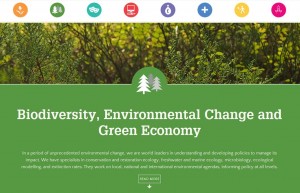 Training sessions are taking place over the next two months. You can book a session online or contact Rebecca Edwards for more information.
Training sessions are taking place over the next two months. You can book a session online or contact Rebecca Edwards for more information.
Using the website is surprisingly easy and in the sessions you’ll learn how to upload, edit and tag content. Rather than carrying out training sessions with ‘dummy’ test material, we would like to use the time for you to upload relevant content to your research theme.
We’d be grateful if you could please have something available that you can upload during the training session. Examples could include:
– New or recent images
– Videos
– Details of a new research project
– Details of successful grant applications
– A profile of a post graduate researcher
– Information about planned or recent public engagement activity
Rebecca Edwards or I will be happy to answer any questions in the meantime, so do get in touch. We look forward to seeing you at one of the training sessions.
eBU papers viewed over 800 times by BU community!
 The internal side of eBU has only been live for a matter of months. However, in this time eBU has internally published and reviewed 6 papers. Initially envisaged as a developmental vehicle for early career scholars, submissions are coming (and welcome!) from both senior academics and authorship teams comprising students and staff.
The internal side of eBU has only been live for a matter of months. However, in this time eBU has internally published and reviewed 6 papers. Initially envisaged as a developmental vehicle for early career scholars, submissions are coming (and welcome!) from both senior academics and authorship teams comprising students and staff.
Submissions include original research on the emotional geographies and dynamics of doctoral supervision (Fox), e-learning resources on nutrition for supporting cancer survivors (Murphy et al), and destination management in the creative industries (Long). Review papers have also been submitted on the role of patient choice and older people (Harding et al), banking for the public good (Mullineux) and consumer attitudes toward organic food (Howlett et al).
The breadth of submissions and the extent of author engagement are clearly positive. However, I am pleased to report that I am able to offer a better measure of the success, engagement and coverage that eBU is having. As the headline to this blog states, eBU submissions have been viewed over 800 times. This is a monumental amount of engagement, and shows the value of eBU and the interest it has built up among the BU community.
If you have something to submit for immediate internal publication and open peer review or want to view existing papers, you can access eBU when on campus by typing ‘ebu’ into your web browser address bar. Logging into eBU can be achieved by using your regular BU username and password credentials. When off campus eBU can be accessed via ‘View’ (if you do not have View on your home PC or laptop, it can be downloaded here).
Finally, watch this space for the external side of eBU!
Research website training sessions: book on now!
Further to my last post on the launch of the new research website, please book on to a place now via the links below:
- 29th November, Talbot Campus – 9.30am
- 29th November, Talbot Campus – 11.30am
- 3rd December, Lansdowne Campus – 9.30am
- 3rd December, Lansdowne Campus – 2pm
- 13th December, Talbot Campus– 9.30am
- 8th January, Lansdowne Campus – 9.30am
- 8th January, Lansdowne Campus, 11.30am
If you have already received a diary invitation from Rebecca Edwards, your place is already reserved.
If you are unable to attend of these dates, a rolling programme of training will be running from January onwards.In the meantime, if you have any queries or concerns, please do not hesitate to contact Rebecca Edwards.

ESRC knowledge exchange funding to change
ESRC is to change the way in which it allocates funding for knowledge exchange activities. The current knowledge exchange opportunities scheme provides funding for social scientists to undertake a range of activities with non-academic stakeholders and requires 50% contribution from a partner in the user community. It is open to any social scientist to undertake knowledge exchange based on their research, whether funded by ESRC or not. This scheme will close on 31 March 2014.
From summer 2014, a replacement scheme (Impact Acceleration Accounts) will fund knowledge exchange through a block grant allocated according to institutions’ recent ESRC funding. Those institutions allocated funding will then be required to submit a business plan in order to release the money.
BU has not been allocated funding through the Impact Acceleration Accounts, so if you are a social scientist and hope to undertake funded knowledge activities, start planning your application now for submission by March… Further information can be found at http://www.esrc.ac.uk/collaboration/knowledge-exchange/opportunities/index.aspx.
Knowing how to find the right way along the career path
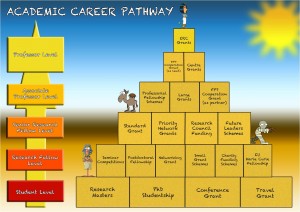 I have blogged already on the complexities of knowing how to build a perfect academic career path. Knowing which grant to go for, which funders, which collaborators and so on can be a minefield if you don’t have a great mentor to guide you through it.
I have blogged already on the complexities of knowing how to build a perfect academic career path. Knowing which grant to go for, which funders, which collaborators and so on can be a minefield if you don’t have a great mentor to guide you through it.
One of the key aims of the BRAD framework is to help academic staff identify their skills and areas for improvements to help them get to where they need to be in their career. And it is helpful if you know where you want to end up.
Prof Adrian Newton is one of our most established researchers and will share his advice with colleagues attending. This will include how to develop your career to become an established researcher. The session is taking place on the afternoon of 2 December and spaces for this session are limited, so you will need to book via the Staff Development webpage.
Latest Funding Opportunities
 The following opportunities have been announced. Please follow the links for more information:
The following opportunities have been announced. Please follow the links for more information:
- The Academy of Medical Science are providing funds to support travel between the UK and Middle East through the Daniel Turnberg UK/Middle East Travel Fellowship Scheme. Funding of up to £3,500 is available closing on 15/01/14.
- The AHRC Science in culture innovation awards are now open. Funding of up to £80,000 (80% of FEC) over a period of 12 months will be awarded to successful grants. The closing date for this opportunity is 27/02/13.
- AHRC have opened a call for Research Innovation grants in Translating Cultures. Funding of between £150,000 and £200,000 is available. Closing date is 06/03/14.
- Have a great idea for an engaging exhibition stand at next Novembers Great British Bioscience Exhibition? The BBSRC have just announced £10,000 worth of funding to support these innovative and engaging ideas. Closing date for applications is 15/01/14.
- The British Academy are supporting visiting fellowships through the Association of South-East Asian Studies in the United Kingdom by providing awards of up to £5,000 to enable scholars to make research visits to research centres operated by the European Consortium for Asian Field Study. Closing date is 20/12/14.
- EPSRC provide funding to encourage international collaboration through their Bilateral research workshops. Funds will cover the UK participants travel costs and for UK meetings, cover the core meeting expenses. There is no set closing date for this opportunity.
- Taking place at The University of Nottingham the EPSRC are hosting a two day workshop in Exploring the science behind additive manufacturing and 3-D printing sandpit. Funds are available to cover the cost of travel to Nottingham. Closing date is 10/12/13.
- Research grants of up to £1m are available from the MRC to support a wide range of projects. Topics include Infections and Immunity (closing 15/01/2014), Molecular and Cellular Medicine (closing 08/01/14), Population and Systems Medicine (closing 21/01/14), and Neurosciences and Mental Health (closing 04/02/14).
- £150 million is being put forward as capital by the MRC to enhance the UK’s clinical research capabilities and technologies. Individual awards of up to £20 million are available, closing for expressions of interest is 07/01/14 with funding decisions being made in July for spend in 2015/16.
- Funding of up to £2000 is available from the NERC to cover travel and subsistence costs associated with undertaking a Work shadow placement. There is no closing date for this award.
- The NIHR invite applications invites applications for the researcher-led workstream under its efficacy and mechanism evaluation programme. The closing date for this year’s round of funding is 27/02/14.
- RCUK provide support to disabled students on a RCUK studentship through a Disabled Students Allowance scheme providing assistance with the additional expenditure arising from their disability.
- The TSB, in collaboration with the Welsh government and the EPSRC are investing a total of £3.8 million in business led projects to develop innovative Tools and services for synthetic biology. Individual projects should be for between £100,000 and £350,000 however those outside the range will be considered. Closing date for registration is 08/01/14 and the deadline is the 15/01/14.
- Four awards of up to £25,000 are available from the TSB as part of their Digital innovation contest in advertising. The closing date for this opportunity is 06/01/14.
Please note that some funders specify a time for submission as well as a date. Please confirm this with your RKE Support Officer.
You can set up your own personalised alerts on ResearchProfessional. If you need help setting these up, just ask your School’s RKE Officer in RKE Operations or see the recent post on this topic.
Leisure, Recreation and Tourism Seminar
Wednesday 4th December, 3.30 – 5.00, TAG32.
Emma Kavanagh and Andrew Adams: ‘Treating performance athletes as human beings: Whose rights, whose responsibilities?’
and Ian Jones (Dr): ‘Why we carry on when things go wrong: Social Creativity, Sport and Leisure.’
Sign-up to this theme to get seminar notifications.
BU academic at United Nations expert meeting

Dr Maharaj Vijay Reddy from the School of Tourism was invited to present to an expert group meeting on ‘Sustainable Tourism: Ecotourism, Poverty Reduction and Environmental Protection’, at the United Nations Secretariat, New York (29-30 October 2013). This expert group meeting was organised by the United Nations Division for Sustainable Development.
Vijay’s presentation was on the topic of planning for sustainable tourism, and highlighted six emerging global challenges in sustainable tourism.
The UN General Assembly, at its 67th session (2012-2013), adopted a resolution on the promotion of ecotourism for poverty eradication and environmental protection, which further elaborated on the close linkages and potential for ecotourism to contribute to poverty alleviation and sustainable development. In this regard, the United Nations invited the UN system and other relevant international organizations, the public sector, private companies and other stakeholders to create capacity for well managed ecotourism with minimal negative environmental and cultural impacts, through dissemination of good practice, tools and guidelines. The conclusions and recommendations emanating from this meeting will be of value to UN member states aiming to develop eco-tourism potentials, including, among others, Small Island Developing States as well as other countries with coastal, mountainous or forest, lake or desert tourism resources.
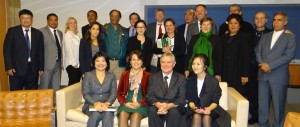
Vijay commented that “the meeting was a big success and it concluded well. The participants of this expert group meeting delivered many cutting-edge presentations addressing the global challenges and the opportunities that sustainable tourism offers. The key areas we discussed at the UN include: the need for global engagement, the situation of Small Island Developing States and LDCs, developing the market for sustainable tourism services, assessing socio-economic benefits, employment generation and poverty reduction from sustainable tourism and initiatives related to Green Economy transition”.
Easy guide to Horizon 2020
 UKRO have created a very helpful and short guide to Horizon 2020 which is available on their portal. BU subscribes to the UKRO services and therefore all BU staff have access to this (simply register for an accout if you haven’t already and you will also get very useful updates from them too!).
UKRO have created a very helpful and short guide to Horizon 2020 which is available on their portal. BU subscribes to the UKRO services and therefore all BU staff have access to this (simply register for an accout if you haven’t already and you will also get very useful updates from them too!).
This hyperlink should take anyone with an account straight to it, but if you have any problems, just log in and go to ‘Future Funding’ in the left hand navigation. The three thematic areas all have their own pages and the useful over view of all contains the guide.
BU Lecturer wins ‘Best Emerging Presenter’ award
Congratulations to Emma Kavanagh, Lecturer in Sport Psychology and Coaching Sciences, who has been awarded the prestigious Celia Brackenridge Prize for the best emerging presenter at the Brunel International Research Network for Athlete Welfare (BIRNAW) Symposium at Brunel University.
The prize was awarded on the basis of Emma’s two presentations at the event. The first introduced a conceptual framework for understanding virtual maltreatment in sport and the second introduced a humanization framework for enhancing understanding of athlete welfare.
Receiving the award is great achievement given that the symposium consists of the leading researchers worldwide in the area of athlete welfare.
XMAS SHOPPING FOR RETAIL RESEARCH IDEAS? – SHOW & TELL/MEET AND GREET SESSION AT TALBOT CAMPUS: 10TH DECEMBER!
The Retail Research Group (RRG) offers a forum for cross-university research project co-operation across the university. This research group is part of the Hospitality and Retail Academic Group of the School of Tourism but welcomes membership from all schools – anyone who has potential research interests of a retail-related nature. The current Retail Research Group focuses on a wide range issues including shopper consumer behaviour, branding, wayfinding, ethical retailing, cultural/arts retailing, tourist retail, events retailing, pop-up shops, place and space/atmospheric design, mobile commerce, multi-channel loyalty, co-creation and retail marketing. Sectors focused upon include food, fashion, entertainment, department stores and museum/gallery shops and cafés. Recent publicity on the governmental Portas Report and aspects of urban decline or the ‘Death of the High Street’ have been a prompt for a renewed attention on broader socio-cultural aspects of retail relating in city, town, country, community and environmental considerations.
The research group aims to act as a hub for retail-related research activity across the University. In the spirit of Fusion, the group also has an extremely strong focus upon student consultancy projects, PhD research development, and engagement with industry.
With this in mind they have scheduled a Show and Tell/Meet and Greet Session for Tuesday December 10th at 1.00 pm in The School of Tourism’s new Professional Engagement Suite, D234, 2nd Floor, Dorset House, Talbot Campus.
Anyone wishing to participate in the Show and Tell part of the session, where they can join the current RRG team in briefly presenting their areas of research interest for a few minutes each, should send three Powerpoint slides briefly covering their interests in issues relating to retail to Charles McIntyre (email: cmcintyre@bournemouth.ac.uk ) by Monday 9th December. Break-out discussion sessions will be possible following the main presentations.
Any others just wishing to just Meet and Greet or hear some ideas for areas of potential research presented are also welcome to attend – all welcome!
Christmas refreshments will be provided. Hope to see you there – in retail style: ‘Have a good day!’
Poole Bay Bait Cam
This edited footage was not obtained from an aquarium but from rocks near Bournemouth Pier in Poole Bay during the summer of 2013. GoPro cameras attached to a weighted framework were deployed to depths of between 3-8m. Fish and invertebrates are attracted to bait fixed to a pole extended in front of the camera – a technique known as Baited Remote Underwater Video (BRUV). The method is particularly suited to areas where conventional traps or mobile nets are excluded, such as in protected areas or where obstacles create hazards for SCUBA divers. The data collected will be compared with video obtained from Boscombe Artificial Surf Reef and other sites within the Bay.
How many species can you identify?
This research carried out by Bournemouth University is supported by the Esmée Fairbairn Foundation.
Watch in 1080p HD for best results.
Find more over on the Poole & Purbeck Portal.
Under-grad Midwifery Students and Examination of the Newborn – a pilot project.
Five pre-registration midwifery students were successful in their application to take part in a pilot project which will equip them with the knowledge, skills and competency to undertake examination of the newborn prior to qualification as a midwife. Midwives have always undertaken an initial examination of a baby soon after birth and the 24 hour ‘medical’ examination was traditionally undertaken by junior doctors or GP trainees. Following a change in doctor’s hours and a call for more holistic midwifery care, midwives began to take on the role of examining newborns following a period of rigorous training and education delivered through universities throughout the UK. Bournemouth University, for many years now, has been actively involved in educating midwives into this role, both locally and as far a field as Brighton and Gloucester. Currently the under-graduate midwifery curriculum does not offer this learning to its midwifery students although there is a strong push nationally for students to qualify with the skills.  Two universities have already embedded the skills into their three year curriculum and BU will begin to educate and train students with the necessary skills/competencies in 2014 with a brand new midwifery curriculum. In the meanwhile we are fast tracking five motivated students. The students (Bex, Jenna, Katie, Luzie and Jeanette (not in photograph) have to access all the post grad teaching and learning days (x5) which started last week. As well as undertaking an assessed presentation (6th day) with their qualified colleagues, they will have to undertake 30 newborn examinations under the watchful eye of their midwifery mentor who already has the qualification. The unit leader (myself) will undertake their final assessment in practice in conjunction with their mentor. If successful the students will be awarded with 20 CPD credits for use after qualification.
Two universities have already embedded the skills into their three year curriculum and BU will begin to educate and train students with the necessary skills/competencies in 2014 with a brand new midwifery curriculum. In the meanwhile we are fast tracking five motivated students. The students (Bex, Jenna, Katie, Luzie and Jeanette (not in photograph) have to access all the post grad teaching and learning days (x5) which started last week. As well as undertaking an assessed presentation (6th day) with their qualified colleagues, they will have to undertake 30 newborn examinations under the watchful eye of their midwifery mentor who already has the qualification. The unit leader (myself) will undertake their final assessment in practice in conjunction with their mentor. If successful the students will be awarded with 20 CPD credits for use after qualification.
Undertaking the pilot will be demanding for the students as they will still have to obtain their EU midwifery numbers, but it will not be at the expense of the pilot. Their under-grad training takes precedence.Furthermore a number of conditions were attached to the offers of a place: the pilot cannot be used as mitigation for any referred unit in their 3rd year and the credits cannot be used to top up their degree should they not achieve the requisite 120 credits for completion. All the students expressed strong commitment to obtaining the necessary skills and they have until September 2014 to complete. The pilot will pave the way for the new curriculum and will help with exposing any shortfalls in practice. I am immensely proud of the students for taking on this extra work. They have so many competing demands on their time and this will be just another. However it will provide the students with the skills to examine newborn babies when they are newly qualified midwives, which in turn will benefit women and their babies. If anybody is interested in knowing more about the pilot please contact me on: lcbutler@bournemouth.ac.uk
‘Communicating your science workshop’ – organised by the British Science Association
The British Science Association are inviting researchers from BU to attend a one-day training workshop which will develop their public engagement skills. This one-day workshop addresses the growing need for researchers to be confident at communicating and understanding the impact that their research has on society.
How does your research have an impact on society? And how does social media engage the public? Are there any ways of communicating your research better?
What are the benefits of attending the workshop?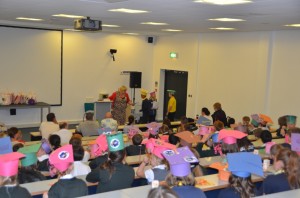
- It will help you to gain confidence in engaging the public with your research
- It will also help to develop your understanding of the place of science within science and the impact that your work has on society.
- It’ll make you aware of existing public engagement platforms
- You will be able to learn about how social media can be used to communicate science to the public
- You will be able to find your research ‘hook’ – what is the most exciting thing about what you do and your research?
The workshop will consist of practical activities which will help you to explore your work’s impact on society and improve your communication skills. It’ll also give you guidance on how to engage with different audiences.
The fee will include all resources, a full day’s tuition with experienced practitioners and refreshments during the day.
Date: 09.12.13
Time: 10:00 – 16:00
Where: Dana Centre, London
Cost: £50 (+VAT)
This one-day workshop is suitable for MSc (research) students, PhD, and early post-doc researchers from all aspects of the sciences.
For more information, including how to book, please visit the British Science Association website.
Fifteen top tips for getting research funding
How can you increase your chances of being successful when applying for research funding? Here are a few ideas from an AHRC panel member (with thanks to AHRC and the panel member):
- Ensure the scheme and applicant are a good match. Funders won’t give millions of pounds to new researchers.
- Does the team include an appropriate mix of people? Someone should be able to cover all of the disciplines represented in the proposal, and individuals at a range of career stages should be included.
- Remember that the assessors will be both subject specialists (the reviewers) and generalists (panel members). The panel can be targeted through the lay summary.
- Use the subject area to define the research expertise of your reviewers. Stating that your research is in the field of philosophy when this is peripheral to the study may mean your reviewers are unfamiliar with your subject.
- Imagine your nightmare critic and pre-empt their criticisms; respond to these without being defensive, but without glossing over any problems.
- Make the link to the funder’s remit clear. If the panel need to discuss whether or not the project is within the funder’s remit, the project is unlikely to be funded.
- Allow time to prepare and write the application. Two months to prepare, and a full week to write the application is to be expected, and then costing, gaining internal approvals etc still need to follow. Successful applications may be useful as a model, but slavishly following them may not succeed as the funder’s objectives may have changed.
- The application should cohere as a whole, but not be too repetitive. Stick to the first or third person, ensure it is clear who is meant when you say ‘I’ and make sure your spelling and grammar are correct. If the funder offers guidance on headings for specific sections, use them.
- If the funder requires an impact statement, be modest and realistic, set specific goals and milestones and don’t over-inflate your claims.
- If your research involves human participants, there will be ethical considerations. If the project involves a collaboration, make it clear who will take the lead for ethical approvals and ongoing ethical considerations.
- It’s all in the detail: name which conferences at which you hope to present your work and the journals in which you plan to publish. Explain how the publications differ, and detail which team members will work on each.
- When working out the costs, don’t skimp on hours. If you have fractional research assistants, explain why. If you are planning to publish a manuscript, allow time for revision. Don’t make the project cheap just for the sake of it, but make sure it is well considered and achievable within the resources. The reach and significance of the project are more important than the overall budget.
- Detail monitoring arrangements for the project: who will monitor progress, within what institutional structures, will there be management or advisory boards and what is the reporting structure? For early career researchers, what monitoring, career development and mentoring will be in place?
- Use internal peer review services (at BU, RPRS is available for all research applications) and talk to panellists or peer reviewers for your funder. Some people at BU may have relevant expertise you can tap into – get in touch with RKEO and we may be able to offer some names.
- Use your right to reply where funders allow. A critical review is not the end of your funding hopes, and a PI response can be used to elaborate on thoughts you didn’t have space for in the original application. Don’t be aggressive or defensive; it may be worth asking a colleague to read through your response to remove any emotional involvement. Also don’t repeat the positive comments; the panel will see these when they consider the application, and you can better use the space responding to misunderstandings or requests for further detail.
USA-UK Multilateral University Research Partnership Grant available
 The USA and UK governments have launched the Global Innovation Initiative which is open for applications. This is a new higher education grant competition created to strengthen higher education research partnerships between the USA, the UK and selected countries, which have been identified as Brazil, China, India and Indonesia. This initiative will provide exciting grant opportunities for university consortia on topics of global significance in the fields of science, technology, engineering and mathematics (STEM) in the following four areas: energy, climate change and the environment; agriculture, food security and water; public health and wellbeing; and urbanization.
The USA and UK governments have launched the Global Innovation Initiative which is open for applications. This is a new higher education grant competition created to strengthen higher education research partnerships between the USA, the UK and selected countries, which have been identified as Brazil, China, India and Indonesia. This initiative will provide exciting grant opportunities for university consortia on topics of global significance in the fields of science, technology, engineering and mathematics (STEM) in the following four areas: energy, climate change and the environment; agriculture, food security and water; public health and wellbeing; and urbanization.
The Global Innovation Initiative was created to support multilateral research collaboration to address global challenges, in keeping with the vision of U.S. President Barack Obama and UK Prime Minister David Cameron’s joint statements in 2011 and 2012. The initiative aims to stimulate innovative partnerships between at least one higher education institution in each of the U.S., the UK, and a designated other country. Grants of up to $250,000 will fund new research activities, faculty and researcher exchange, joint publications and symposia, and numerous other multilateral efforts.
Two parallel, but separate grant competitions will be offered in the U.S. and UK, and an institution from either country will be required to take the lead on the partnership. Partnership proposals with a U.S. lead institution will apply through the U.S. competition and those with a UK lead institution will apply through the UK competition.
For more information about the initiative and how to apply, please visit the Global Innovation Initiative’s website. The deadline for applications is December 16th.
Latest Major Funding Opportunities
The following opportunities have been announced. Please follow the links for more information:
- The UnBox LABS 2014 is an exciting opportunity for creative practitioners, artists and researchers to take part in a 10-day lab experience bringing together the UK and India to explore the theme “Future Cities”. The AHRC are providing support for travel and accommodation to India, along with a small prototype development budget. Closing date is 06/12/13.
- The British Academy’s annual Wiley prize in psychology is now open providing an award of £5,000 in recognition of excellence in research in psychology. The 2014 award will be focussing on promising early-career work by a UK based psychologist. They are also offering the Wiley prize in economics which recognises outstanding contributions to the field from early career researchers. The closing date for both nominations is the 31/01/14.
- Interested in international collaboration? The British Academy are offering grants of up to £30,000 in their International partnership and mobility scheme. Closing date for applications is 05/02/14.
- BBSRC’s FLexible Interchange Programme supports the movement of people from one environment to a different one to exchange knowledge, technology and skills in order to develop bioscience research and researchers. This programme closes 28/01/14.
- The BBSRC are opening calls for super follow-on funding on the 2nd December. This programme is designed to support the translation of research into practical and commercial application. The maximum award is £2 million. The closing date is 05/02/14.
- The EPSRC are looking to strengthen relationships between industry and academics through their High Value Manufacturing Catapult fellowships. Closing date 16/12/13.
- Two ICT Early Career Researcher Workshops are being run in February 2014 in Oxford and Glasgow by the EPSRC. Closing date for registration is 03/01/14.
- The MRC are offering New Investigator Research Grants aimed at researchers who are ready to take the next step towards becoming independent principal investigators. The maximum award is unspecified and the closing date for this award is 21/01/14.
- Interested in building a career in health economics? The MRC are offering early career fellowships in economics of health, providing three years of paid salary, cover for training and other associated costs. The closing date for this opportunity is 17/06/14.
- The MRC are offering a Methodology Research Fellowship aimed at developing the next generation of research leaders in biomedical and health research problems. This is an intermediate level fellowship for those with between 4-8 years of post-doctoral experience. The closing date for this award is 17/06/14.
- There is a Population health scientist fellowship on offer through the MRC providing up to 4 years of support to pre and post-doctoral researchers. The given closing date is 17/06/2014.
- New investigator research grants are available from the MRC, providing support for both clinical and non-clinical researchers. Areas covered include; Infections and Immunity (closing 15/01/2014), Molecular and Cellular Medicine (closing 08/01/14), and Neurosciences and Mental Health (closing 04/02/14).
- Are you an outstanding postdoctoral researcher? Take the next step to becoming an independent investigator with this Career Development Award from the MRC. Closing date 30/04/14.
- Interested in building a career in statistically based health research? Take a look at this MRC Career Development Award in Biostatistics. Closing date 17/06/14.
- There is a cross board call open from the MRC for proposals addressing Chronic Fatigue Syndrome/Myalgic Encephalomyelitis. There is no fixed award or specified closing date.
- There is a call by the MRC for research proposals in prevention and treatment of type 2 diabetes in low and middle income countries. Up to £2m in available in funding for multiple proposals and the closing date is 11/02/14.
- A Biomedical Informatics fellowship is available from the MRC to support individual with a clear ambition for research in biomedical and health research. Closing date 17/06/14.
- Designed to fund rapid response to unexpected and temporary environmental events NERC offer Urgency Grants of up to £52,000. There is no specified closing date.
- Five Dorothy Hodgkin Fellowships are available from the Royal Society to help early career researchers who may need to a flexible working pattern due to personal commitments such as child care or health issues. Closing date is 13/01/14.
- The TSB are looking to invest up to £3 million in collaborative R&D projects with a focus on Vessel Efficiency – better systems at sea. Projects should be collaborative and business led and will typically range in size from £500K to £1.5 million. Registration ends 26/02/14 and the closing deadline is 05/03/13.
- The Wellcome Trust are offering Arts awards for small to medium sized projects that encourage collaboration between art and science. The maximum aware is £30,000 and the closing date is the 28/02/14.
- Small grants of up to £5,000 are available from the Wellcome trust for scoping exercises or meetings to discuss research in the medical humanities. There is no specified closing date for these awards.
Please note that some funders specify a time for submission as well as a date. Please confirm this with your RKE Support Officer.
You can set up your own personalised alerts on ResearchProfessional. If you need help setting these up, just ask your School’s RKE Officer in RKE Operations or see the recent post on this topic

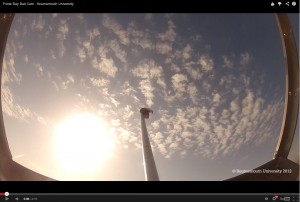












 UKCGE Recognised Research Supervision Programme: Deadline Approaching
UKCGE Recognised Research Supervision Programme: Deadline Approaching SPROUT: From Sustainable Research to Sustainable Research Lives
SPROUT: From Sustainable Research to Sustainable Research Lives BRIAN upgrade and new look
BRIAN upgrade and new look Seeing the fruits of your labour in Bangladesh
Seeing the fruits of your labour in Bangladesh Exploring Embodied Research: Body Map Storytelling Workshop & Research Seminar
Exploring Embodied Research: Body Map Storytelling Workshop & Research Seminar ECR Funding Open Call: Research Culture & Community Grant – Apply now
ECR Funding Open Call: Research Culture & Community Grant – Apply now ECR Funding Open Call: Research Culture & Community Grant – Application Deadline Friday 12 December
ECR Funding Open Call: Research Culture & Community Grant – Application Deadline Friday 12 December MSCA Postdoctoral Fellowships 2025 Call
MSCA Postdoctoral Fellowships 2025 Call ERC Advanced Grant 2025 Webinar
ERC Advanced Grant 2025 Webinar Update on UKRO services
Update on UKRO services European research project exploring use of ‘virtual twins’ to better manage metabolic associated fatty liver disease
European research project exploring use of ‘virtual twins’ to better manage metabolic associated fatty liver disease